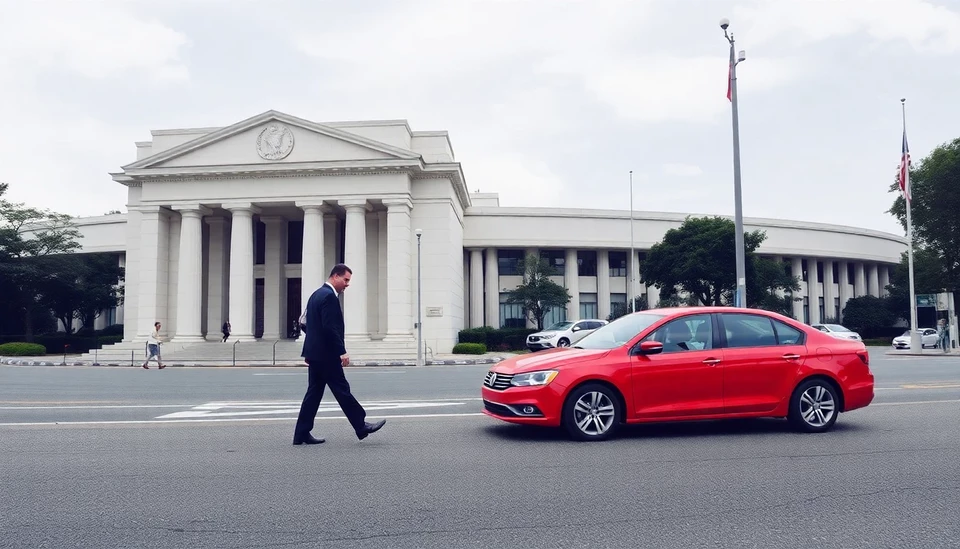
In a significant development that could reshape global economic forecasts, former President Donald Trump's auto tariffs are playing a crucial role in the Bank of Japan's (BOJ) evaluation of its interest rate policy. As traders and economists analyze the potential impact of these tariffs on the Japanese economy, expectations are increasingly leaning towards no imminent rate hike in May 2025.
The tariffs, implemented as a part of a broader strategy to reinvigorate American manufacturing by taxing imported automobiles, have led to ripple effects beyond U.S. borders. With Japan being one of the largest automobile manufacturers in the world, the new tariffs are likely to affect the sales of Japanese car makers in the U.S. market, resulting in anticipated declines in their revenues and profits. This outcome raises concerns about the overall economic stability of Japan.
Analysts suggest that a continued downturn in the performance of Japan's automotive sector could lead the BOJ to adopt a more cautious stance in its monetary policy. The central bank's ongoing efforts to stimulate the economy through expansive fiscal measures and low interest rates could be put at risk if inflationary pressures are stifled by reduced foreign demand, particularly from the U.S.
As the May meeting draw closer, market participants are keenly watching the BOJ's communications for cues about its next steps. Many believe that if economic conditions deteriorate in response to external shocks, such as the fallout from Trump's tariffs, it could persuade the central bank to hold off on any rate changes during its next policy review. The sentiment is underscored by recent data suggesting that inflation rates in Japan remain persistently low, and any upward movement may falter as businesses face challenges fueled by uncertain international trade conditions.
The BOJ's primary aim has been to maintain stable inflation rates around its 2% target. However, with external factors affecting its domestic economic landscape, the prospect of achieving this target becomes increasingly uncertain. Should Trump's policies continue to induce volatility in trade relationships, there is a genuine risk that the BOJ may need to reassess its strategies, potentially leading to prolonged periods of ultra-loose monetary policies.
In summary, Trump's auto tariffs are presenting a complex challenge for Japan's monetary policy as the BOJ navigates through a landscape heavily influenced by global trade dynamics. The upcoming meeting in May may not only shape Japan's economic outlook but also set the stage for changes in international policy responses concerning trade and fiscal stability.
As discussions unfold, traders and economists alike will remain focused on the BOJ's forthcoming communications, eagerly anticipating how it will steer its course amid the challenges posed by external economic pressures.
#Trump #AutoTariffs #BankOfJapan #MonetaryPolicy #Economy #InterestRates #TradeRelations #JapanEconomy
Author: Daniel Foster




